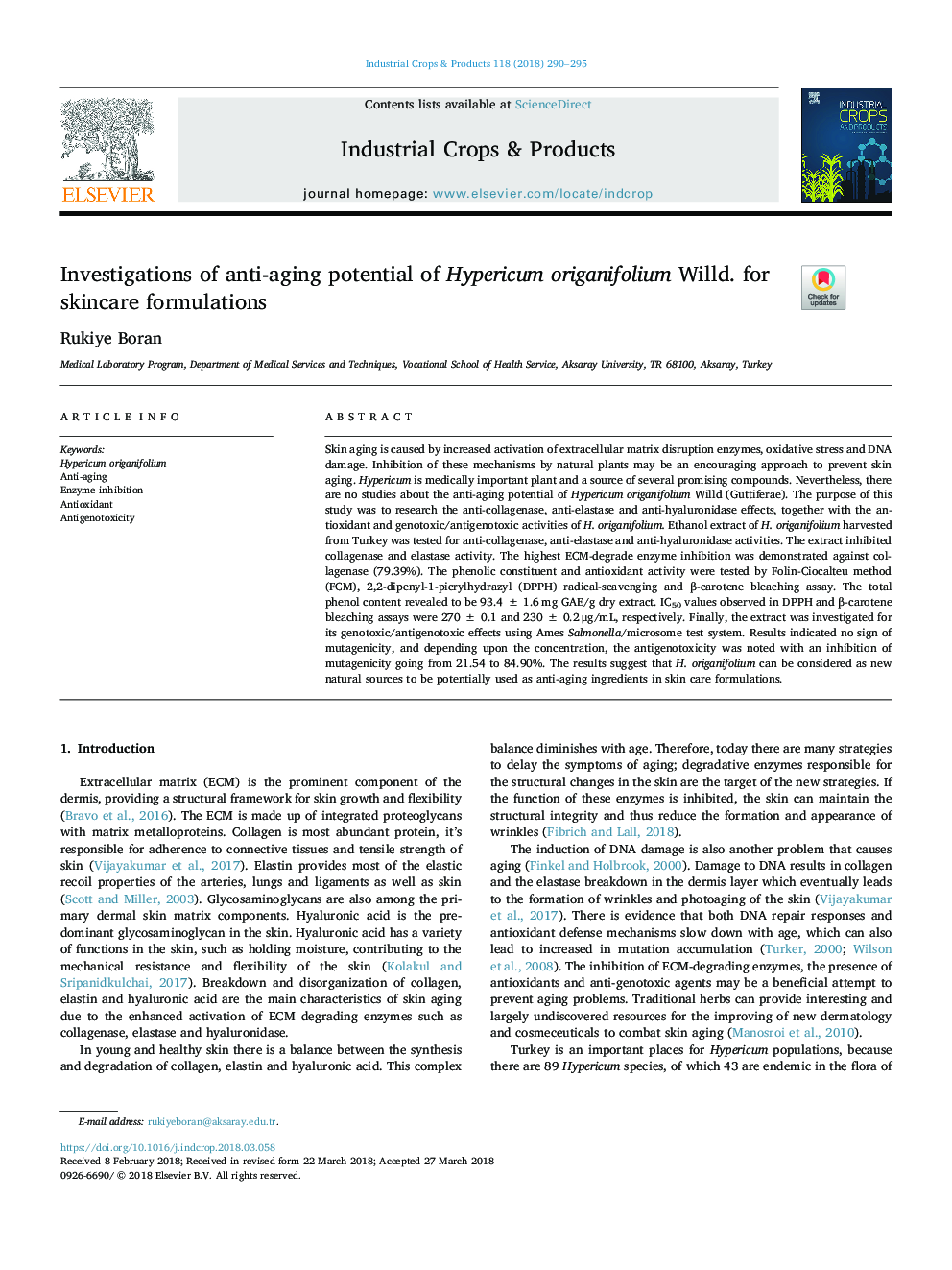| Article ID | Journal | Published Year | Pages | File Type |
|---|---|---|---|---|
| 8880061 | Industrial Crops and Products | 2018 | 6 Pages |
Abstract
Skin aging is caused by increased activation of extracellular matrix disruption enzymes, oxidative stress and DNA damage. Inhibition of these mechanisms by natural plants may be an encouraging approach to prevent skin aging. Hypericum is medically important plant and a source of several promising compounds. Nevertheless, there are no studies about the anti-aging potential of Hypericum origanifolium Willd (Guttiferae). The purpose of this study was to research the anti-collagenase, anti-elastase and anti-hyaluronidase effects, together with the antioxidant and genotoxic/antigenotoxic activities of H. origanifolium. Ethanol extract of H. origanifolium harvested from Turkey was tested for anti-collagenase, anti-elastase and anti-hyaluronidase activities. The extract inhibited collagenase and elastase activity. The highest ECM-degrade enzyme inhibition was demonstrated against collagenase (79.39%). The phenolic constituent and antioxidant activity were tested by Folin-Ciocalteu method (FCM), 2,2-dipenyl-1-picrylhydrazyl (DPPH) radical-scavenging and β-carotene bleaching assay. The total phenol content revealed to be 93.4â¯Â±â¯1.6â¯mg GAE/g dry extract. IC50 values observed in DPPH and β-carotene bleaching assays were 270â¯Â±â¯0.1 and 230â¯Â±â¯0.2â¯Î¼g/mL, respectively. Finally, the extract was investigated for its genotoxic/antigenotoxic effects using Ames Salmonella/microsome test system. Results indicated no sign of mutagenicity, and depending upon the concentration, the antigenotoxicity was noted with an inhibition of mutagenicity going from 21.54 to 84.90%. The results suggest that H. origanifolium can be considered as new natural sources to be potentially used as anti-aging ingredients in skin care formulations.
Related Topics
Life Sciences
Agricultural and Biological Sciences
Agronomy and Crop Science
Authors
Rukiye Boran,
